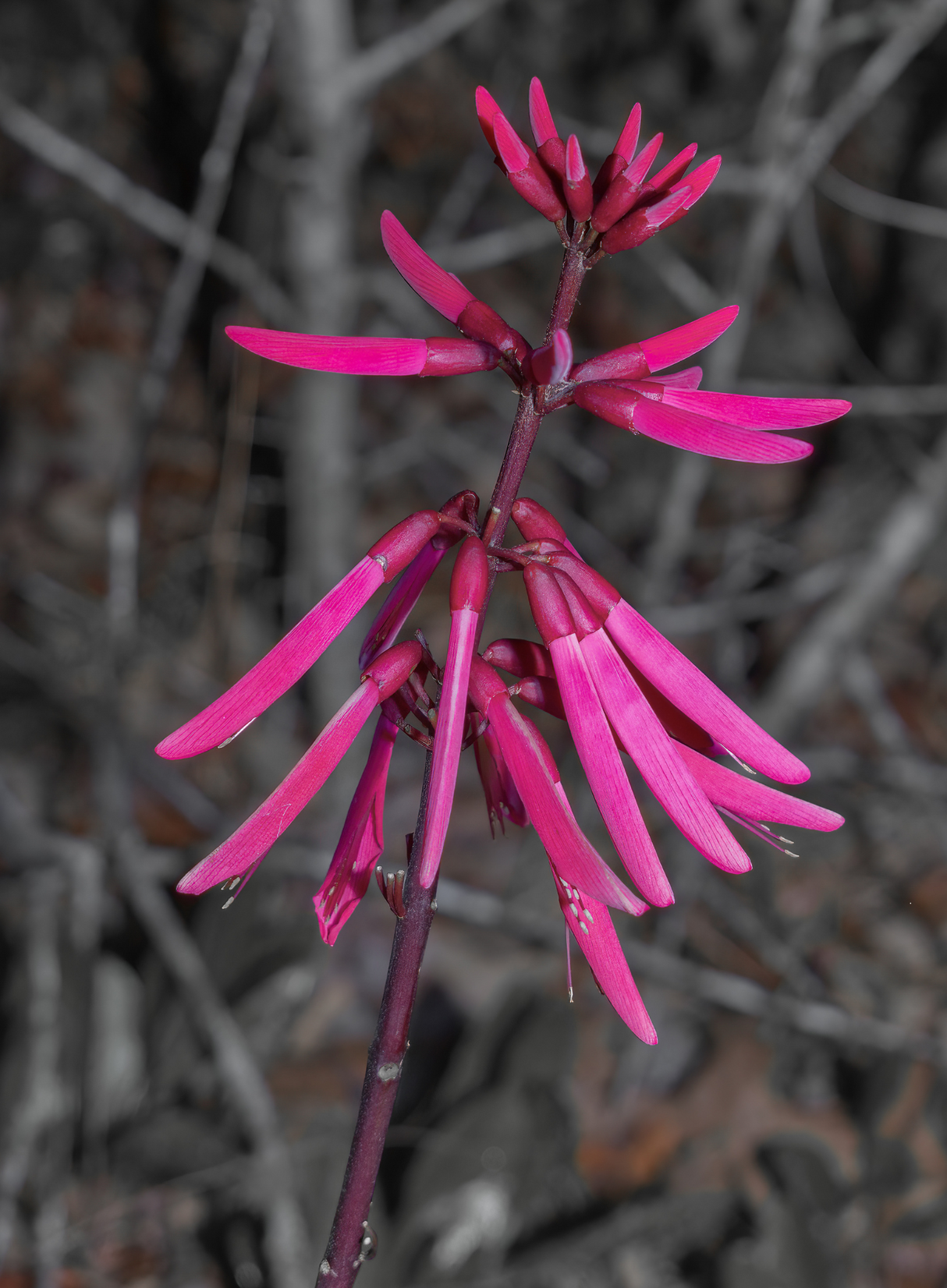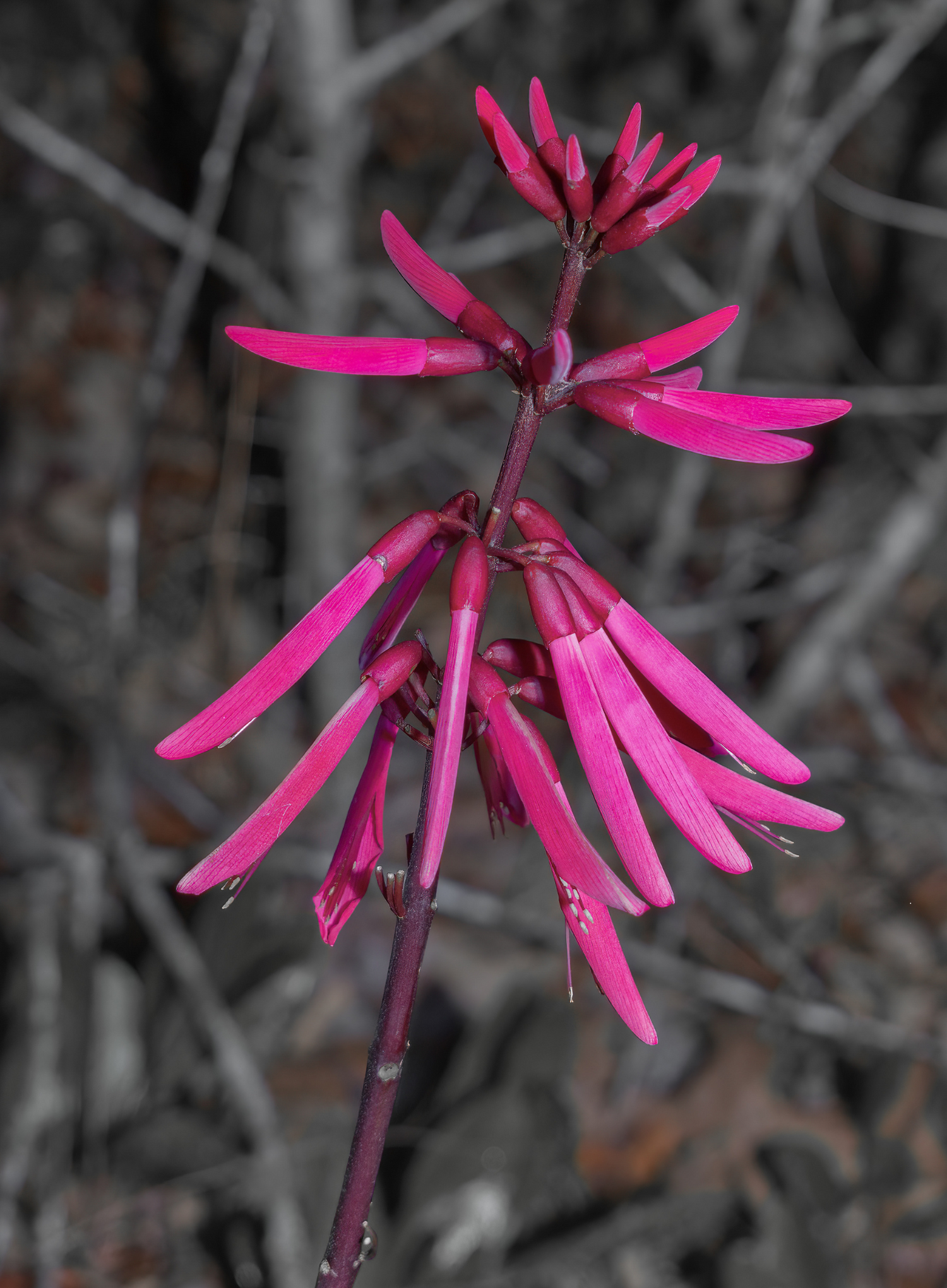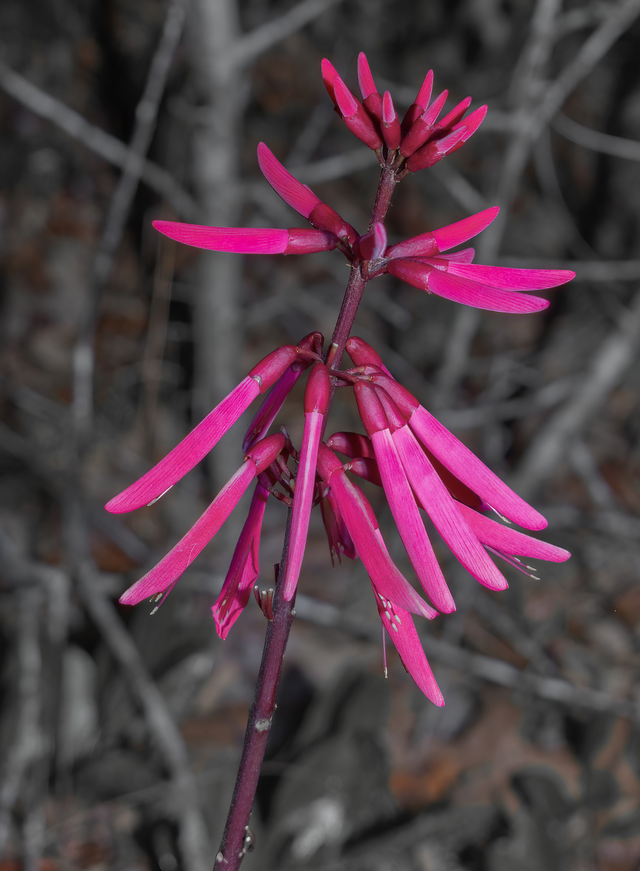Coral Bean
Delivery and Shipping
Delivery and Shipping
All delivery timeframes are approximate but not guaranteed, once placed the delivery date will have to be confirmed. Also note the delivery is to the end of the truck only and does not include installations. To read the full Shipping and Delivery Policy
Coral Bean (Erythrina herbacea) is a deciduous, shrubby perennial native to Florida and the southeastern United States. It produces striking spikes of bright red tubular flowers in spring and early summer, which are highly attractive to hummingbirds and butterflies. In fall, the plant develops distinctive seed pods containing shiny red seeds. While beautiful, these seeds are highly toxic if ingested, so care should be taken around children and pets. Coral Bean’s open, often thorny branches and bold blooms make it a standout in native, wildlife, and pollinator gardens.
Care Needs:
- Light: Full sun to partial shade; blooms best in full sun
- Water: Low to moderate; drought-tolerant once established
- Soil: Well-draining sandy or loamy soil
- Temperature: Hardy in USDA zones 8–11
- Growth Rate: Moderate
- Pruning: Cut back in late winter to encourage healthy new growth
- Fertilizer: Generally not required; apply a light, balanced fertilizer in spring if desired
All parts, especially seeds, are highly toxic if ingested.
Attributes




